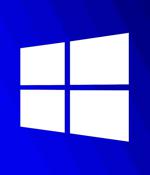Security News

Microsoft has launched flighting for Windows Server systems enrolled in its Windows Insider open software testing program. "If you have a recent Windows Server insider build installed, you can now go to Windows Update in Settings app, and check for updates. This will bring you a newer build, as a Feature update," said Microsoft software engineer Artem Pronichkin.

Microsoft released the January 2024 preview update for Windows 11 versions 22H2 and 23H2, which comes with Bluetooth audio bug fixes and addresses 24 known issues. Tracked as KB5034204, this monthly non-security optional cumulative update will enable Windows admins to test improvements and fixes that will be pushed to all customers with the forthcoming February 2024 Patch Tuesday release.

Microsoft says admins are seeing 0x80073cf2 errors when using the System Preparation tool to validate Windows installations for deployment after installing recent Windows 10 updates. Sysprep helps prepare Windows client or Windows Server installations for imaging and deployment on any system by removing computer-specific information such as installed drivers and the computer security identifier.

Microsoft has released the January 2024 preview update for Windows 10, version 22H2, which adds Digital Markets Act compliance in the European Economic Area to allow European users to uninstall all apps in Windows by March 6. The KB5034203 is a monthly non-security optional cumulative update that enables Windows administrators to try out fixes and improvements that will come with the February 2024 Patch Tuesday release.

We analyzed 2,5 million vulnerabilities we discovered in our customer’s assets. This is what we found. Digging into the data The dataset we analyze here is representative of a subset of clients...

Microsoft plans to provide Windows 11 users with almost instant access to photos and screenshots they've taken on their Android smartphones. The new feature "Introduces the ability to effortlessly access and edit your most recent photos and screenshots from your Android mobile device in Snipping Tool on your PC," the Windows Insider team said.

The latest Windows Server 2022 patch has broken the Chrome browser, and short of uninstalling the update, a registry hack is the only way to restore service for affected users. KB5034129 is a security update for Windows Server 2022 and was released on January 9, 2024.

Threat actors have been observed leveraging a now-patched security flaw in Microsoft Windows to deploy an open-source information stealer called Phemedrone Stealer. “Phemedrone targets web...

Microsoft says that tests of a controversial new Windows 11 feature that automatically opens the AI-powered Copilot assistant after Windows starts are limited to systems with 27-inch displays. For now, the option also requires enrolling in the company's Windows Insider program since the change is currently being tested in the Windows 11 Insider Preview Build 23615, released last Thursday in the Dev Channel.

Microsoft is working to fix a known issue causing 0x80070643 errors when installing the KB5034441 security update that patches the CVE-2024-20666 BitLocker vulnerability. "Devices attempting to install the January 2024 Windows Recovery Environment update might display an error related to the size of the Recovery Environment's partition. We are working on a resolution and will provide an update in an upcoming release," Microsoft says in an update to the Windows release health dashboard.